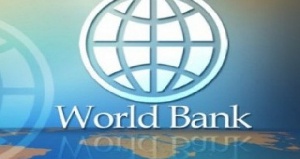Country Director of the World Bank for Ghana, Henry Kerali, has said that government’s recent US$2.25 billion makes economic sense so long as the interest payable on it is lower than what is currently being paid.
“As long as the interest payment on that $2 billion is lower than what the government was paying for, that would be a positive and this is something that only the government can answer. As far as I am concerned that will be a key measure [the coupon rate].
Are you paying less for the same amount of debt than you were paying before? Otherwise interest payments will consume a lot of revenues that are generated. So, if the interest is lower, then it is a positive move,” Mr. Kerali told the B&FT in an interview.
Government in April, issued a US$2.25 billion bond consisting of 15-year and 7-year maturities at a coupon rate of 19.75 percent.
According to a release by the Finance Ministry, the 15 and 7-year bonds raised a total amount of US$1.13 billion and a cedi equivalent of US$1.12 billion in 5 and 10 year bonds via a tap-in arrangement.
The bond has faced a lot of criticism from sections of the public, with some saying the interest on it is too high and will further increase the country’s mounting debt stock.
The Minister of Finance, Ken Ofori-Atta, has however debunked such assertions, saying the issuance proceeds will be used to repurchase and/or retire a portion of the higher coupon short-term public debt instruments, meaning there will not be an overall increase in the total debt stock.
“This is in line with our liability management strategy which seeks to re-profile our public debt stock, extend tenors, reduce short term rollover pressures, and lower domestic interest cost. Additionally, this issuance will further help improve our foreign exchange reserves by over US$2 billion and further support the cedi,” the Ministry said.
Vice President Dr. Mahamudu Bawumia has also said the bond will not increase the country’s debt stock as critics claim.
"Many people didn’t understand the transaction and thought that we have gone to borrow $2 billion to add to Ghana’s debt. No! we are actually replacing more expensive debt with less expensive debt and elongating it and making it better for this country," he said.
Last year, the previous government issued a GH¢438 million 10-year bond which was oversubscribed by 200 percent at a coupon rate of 18.5 percent.
The then Finance Minister, Seth Terkper, defended the deal as one of the cheapest the country had ever transacted.
“Apart from 2011, when stable macroeconomic conditions forced interest on a similar bond to drop to 18.5 per cent, none of the bonds issued by the country had attracted rates lower than 20 per cent.
At 19 per cent, it was prudent and economical for the government to borrow through a longer-term bond which could be used to retire current maturing debts that were issued at rates higher than the rate of the current bond,” Mr. Terkper said in November last year.
Business News of Wednesday, 10 May 2017
Source: thebftonline.com

















